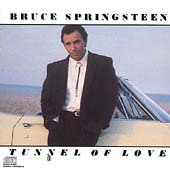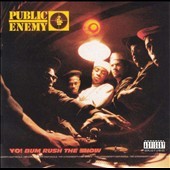475 : Bruce Springsteen : “Tunnel of Love” (1987)
 Despite being born and raised in New Jersey, I’ve never been a huge Springsteen fan. Maybe part of it is that I was always “supposed to” like his music because he’s the Jersey poster boy. Who knows. Regardless, “Tunnel of Love” did nothing to change my mind.
Despite being born and raised in New Jersey, I’ve never been a huge Springsteen fan. Maybe part of it is that I was always “supposed to” like his music because he’s the Jersey poster boy. Who knows. Regardless, “Tunnel of Love” did nothing to change my mind.
Released in 1987, this album finds “The Boss” near the unhappy end of his first marriage, and it shows. Almost every song ruminates on the dark side of relationships, from cheating (“Cautious Man”) to hidden motivations (hit single “Brilliant Disguise”). I found these songs very emotional and was very affected by the sentiments expressed, unlike most of the other albums I’ve heard so far. Far from the anthems of the working class that I associate with Springsteen’s oeuvre, these lyrics are much more personal and at the same time universal.
The music is unlike Springsteen’s earlier work as well. The album alternates between the sparsely arranged folk of “Ain’t Got You” and “Cautious Man,” and the synth-heavy pop of “Walk Like a Man” and “Tunnel of Love.” Only the guitar rock of “Spare Parts” echoes earlier hits like “Glory Days” and “Born in the USA.” While the more typically “’80s-sounding” songs seem more catchy and poppy, they also have aged the worst; the synths and over-reverbed drums sound cheesy to my 2014 ears.
I’m probably never going to listen to this album again. I know this is probably shortsighted of me, but it’s such a heartfelt serious album and then there’s all these cheesy synths and overblown ’80s production. It just ruins it for me. But it was certainly an interesting and rewarding listen.







